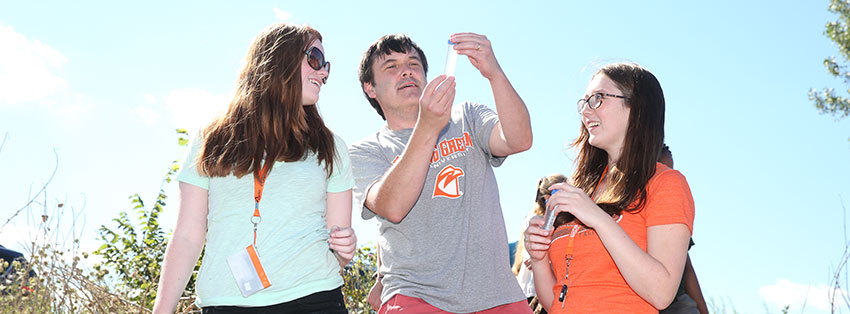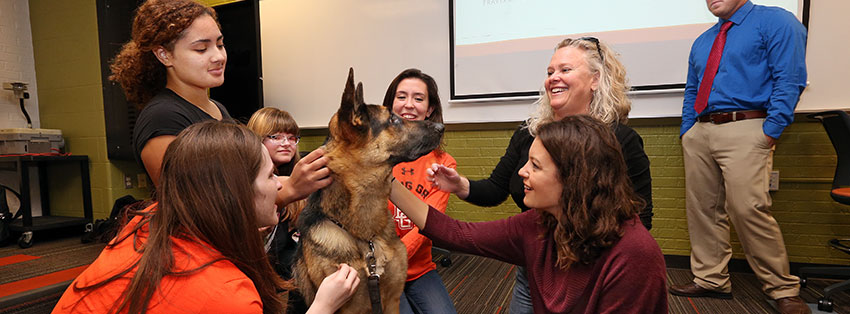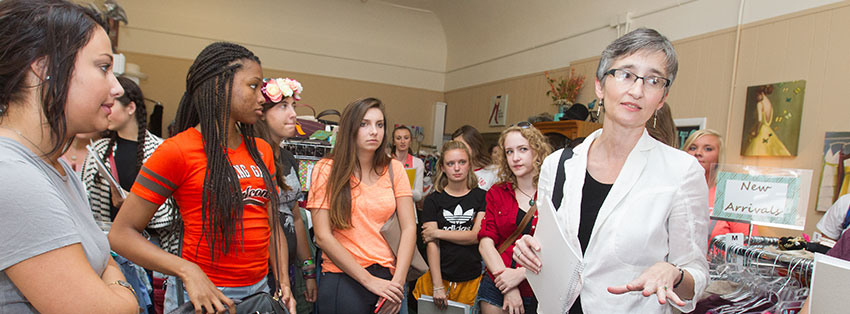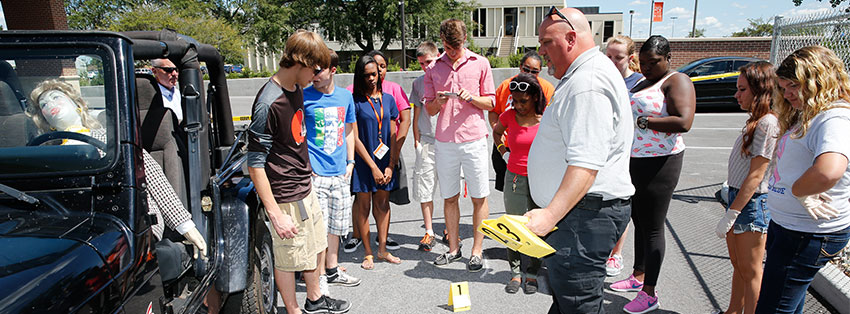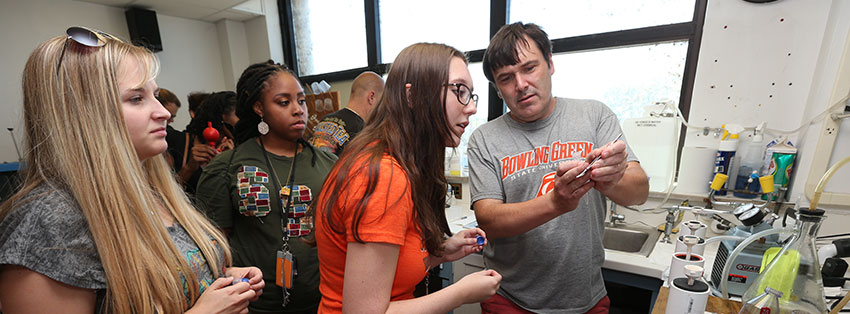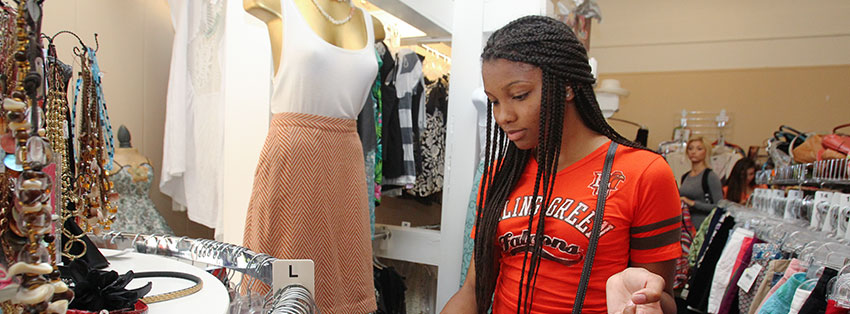BGSU 1910: First Year Seminar
New freshman experience unique, immersive classes
By Jen Sobolewski
The class of 2019 started their career at BGSU with a new, unique immersive experience called the BGSU 1910: First Year Seminar. These classes allow new students to engage academically in a small class setting, helping them adapt to the academic expectations of college and learn how it’s different from high school.
The 1910 seminars are just one hour long, once a week. The course provides students opportunities to work closely with a faculty member and fellow students on a topic of the faculty’s choice. The classes enable students to engage intellectually in a challenging experience right from the start of their college career, and to appreciate the relevance of the course topic outside the classroom and to the community.
Goals include engaging students in the intellectual life of the University, connecting them with a faculty member and fellow students, and involving them in appropriate co-curricular opportunities. The hope is to also develop student-faculty relationships that may lead to mentoring, undergraduate research and service- learning.
Topics this fall ranged from popular culture and folklore to forensics, sports, environment and sustainability, and controversies of the day.
Dr. Jon Sprague, director of the Ohio Attorney General’s Center for the Future of Forensic Sciences at BGSU, is wrapping up a seminar introducing students to forensic science. All the sessions were held inside the new Bureau for Criminal Investigations (BCI) on campus and featured presentations from BCI’s scientists on everything from fingerprinting to checking for the presence of blood, DNA work, and firearms testing.
“We started off with a mock crime scene on the first day and for three hours the students collected evidence,” Sprague said. “Students lifted palm prints from the vehicles, collected the evidence in a proper fashion and then took it in to BCI and worked with the evidence receiving unit.”
Sprague also arranged for the students to receive a tour of the BCI lab.
He said the majority of his students are interested in forensic science, but most of them are not in science-based majors.
“Folks that aren’t truly interested in the sciences can see how it’s used to solve crimes and that’s one of the things I enjoyed most about it,” he said. “I think the biggest feedback I got was that we debunked the TV show ‘CSI’ and showed them that it takes a lot of work and more than one person to solve a crime.”
Margaret Weinberger, a lecturer in sociology, tapped into her passion for animals for her seminar “Animals in Human Lives.”
The topic allowed for a lot of community interaction and trips outside the classroom to The Toledo Zoo and the Toledo Correctional Facility where the inmates help train assistance dogs.
“I really enjoyed all of the trips we went on, it really helped show the bond between students and animals,” said Amanda Coyle, a psychology major.
“I felt like to go along with the trips, the readings we did really helped with learning all the stuff that we had to write papers on. It was really fun to go on the trips and then write about it,” added McKenna Morrissey, a history major.
Weinberger praised the group for their involvement and commitment to the topic. She said during the first class, which was held the Friday before the semester began, she had 100 percent attendance “and most of them had done the reading I’d assigned ahead of time. They asked really good questions based on the article. It was a great start to the semester.”
Students agreed that the seminar achieved the goal of helping to ease the transition to college.
“It isn’t a heavy coursework class, so that really helped,” said Morrissey. “It got you used to the idea of consistently reading in class, answering questions and thinking about what you read.”
Weinberger said she loves the personal interaction that comes from the smaller class setting, but “it’s a vehicle that’s still academic.”
Updated: 12/02/2017 12:49AM

